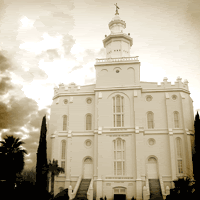Well, Last Wednesday, the day before Thanksgiving Ammon had to do a VCUG and a Renal Ultrasound again. (These are described below, if you are wondering). He has to be checked every 6 months for now to keep a close eye on the kidneys. I hate having to do these tests, because it is just like torture for my Poor little Ammon. It makes for a horrible day, starting out with the VCUG, having to be held down and then get a cathider in and fill his bladder up with yucky dye stuff, then holding him down and turning him at the right times to get the best pictures of the kidneys. The Renal Ultrasound isn't so bad, but he does not want to lay back on that table after the first tests trauma, so he has to be held down again, and he can't stop screaming for the tech to get some good pictures. Anyway, we got that over with & finally today we had to go to Las Vegas to the Pediatric Uroligist to find out the results of the tests. So, it was pretty good news for now. He said they seem to be functioning just fine and the pelvic/ectopic kidney is smaller, but he expected that. The last Ultrasound we did showed some sort of growth or dialated ureter attached to the pelvic kidney. But, it is not there anymore. There is no reflux & he said we shouldn't have to try to do another Mag 3 Renal Scan (the thing we tried to do a few months back where we had a horrible experience trying to get the IV in-you can click here if you liked to read that post) Anyway, so yeah....I don't want to try that again. He said we'll do another Renal Ultrasound in 6 months and we won't even have to do the VCUG next time unless a problem occurs. And then if the next ultrasound is good then we can go a year before we have to do anymore tests!! Yeah!! He has to keep getting checked though, because with the pelvic/ectopic kidney there is more likely for problems. But, I think Ammon will be just fine!! Yeah! Good News!
So, I put a little more info for myself so I can remember all this junk for the future...and for any of you who may be interested.
What is an ectopic kidney? An ectopic kidney is a birth defect in which a kidney is located in an abnormal position. In most cases, people with an ectopic kidney have no complaints. In other cases, the ectopic kidney may create urinary problems, such as urine blockage, infection, or urinary stones. Researchers estimate that ectopic kidney occurs once in every 1,000 births.
What causes an ectopic kidney? During fetal development, a baby’s kidneys first appear as buds inside the pelvis, near the bladder. As the fetal kidneys develop, they climb gradually toward their normal position near the rib cage in the back. Sometimes, one of the kidneys fails to make the climb. It may stop after making part of the climb. Or it may remain in the pelvis. Rarely does a child have two ectopic kidneys. An ectopic kidney may remain in the pelvis, close to the bladder. 
What are the possible complications of an ectopic kidney? When a kidney is out of the normal position, drainage problems are likely. Sometimes, urine can even flow backwards from the bladder to the kidney, a problem called vesicoureteral reflux, or simply reflux. Abnormal urine flow can set the stage for a number of problems. -Infection. Normally, urine flow washes out bacteria and keeps them from growing in the kidneys and urinary tract. When a kidney is out of the normal position, urine may get trapped in the ureter or in the kidney itself. Urine that remains in the urinary tract gives bacteria the chance to grow and spread.
-Stones. Urinary stones form from substances found in the urine, such as calcium and oxalate. Urine that remains too long in the urinary tract increases the risk that these substances will have time to form stones. Symptoms of urinary stones include extreme pain in the back, side, or pelvis; blood in the urine; fever or chills; vomiting; and burning during urination.
-Kidney failure. If urine backs up all the way to the kidneys, damage to the kidneys can occur. As a result, the kidneys can’t filter wastes and extra fluid from the blood. Symptoms of kidney failure include swelling in the legs or abdomen, feeling very tired, headaches, or nausea. If total kidney failure occurs, you will need dialysis or a kidney transplant. Total kidney failure happens only when both kidneys are damaged. One ectopic kidney, even when it has no function, won’t cause kidney failure. The body can survive with one kidney.
-Trauma. If the ectopic kidney is in the lower abdomen, or pelvis, it may be susceptible to injury from blunt trauma. People with ectopic kidney who want to participate in body contact sports may wish to wear protective gear.
Ammon has a little bit of Hydronephrosis, where one of the kidneys is dialated. The Pelvic/ectopic Kidney is smaller, so the other kidney has Hydronephrosis, meaning it is dialated. Normally, urine flows from the kidneys down through the ureters and into the bladder. But, if there is some kind of a blockage that prevents urine from draining properly into the bladder or out of the bladder, the kidney overfills with urine and hydronephrosis occurs. The blockage may be partial, letting urine pass, but at a slower rate and with increased pressure.
Tests
-Voiding cystourethrogram (VCUG) - a specific X-ray that examines the urinary tract. A catheter (hollow tube) is placed in the urethra (tube that drains urine from the bladder to the outside of the body) and the bladder is filled with a liquid dye. X-ray images will be taken as the bladder fills and empties. The images will show if there is any reverse flow of urine into the ureters and kidneys and how well the bladder empties. It is also used to determine if there is obstruction in the urethra.
-Renal ultrasound (RUS) - a non-invasive test in which a transducer is passed over the kidney, producing sound waves which bounce off the kidney and transmit a picture of the organ on a video screen. The test is used to determine the size and shape of the kidney, and to detect a mass, kidney stone, cyst, or other obstruction or abnormalities.
-A renal (kidney) scan (MAG 3 with lasix) - This scan provides very sensitive quantitative information regarding kidney function and drainage characteristics. Along with the IVP, it is particularly helpful in identifying and assessing the degree of blockage.
























1 comments:
I am so glad to hear good news! I am sorry that poor Ammon has to go through so much!
Post a Comment